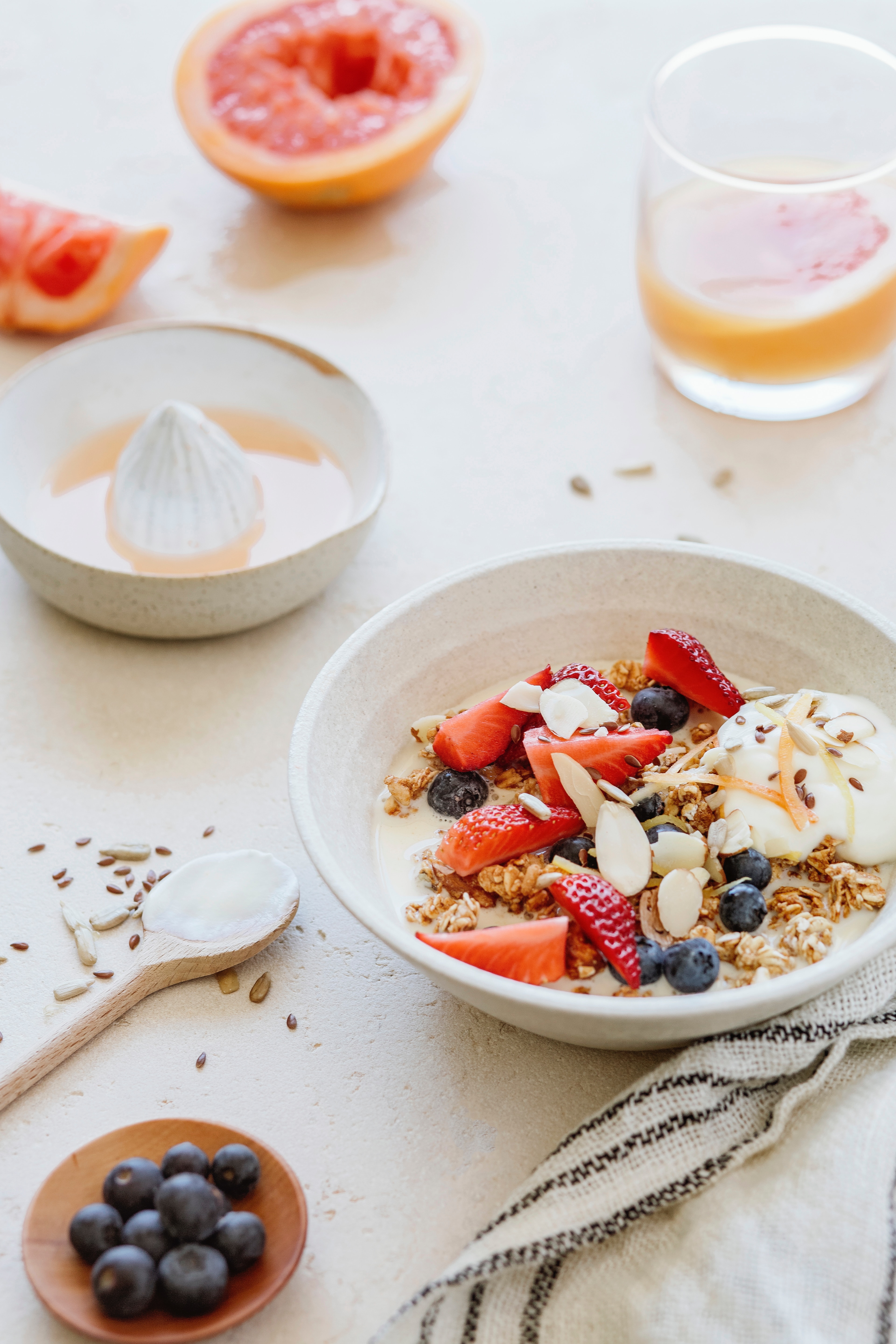A recent study has shown that diet quality influences the balance of bacteria, which we house in our colon. Specifically, diets high in fruits, vegetables and wholegrains are linked to a more beneficial bacterial. A poor quality diet such as one high in sugar, trans fats, saturated fats and alcohol, is linked to more pathogenic bacteria.
The health of our microbiome is something all of us should take active steps to look after considering that it impacts our ability to synthesise vitamins, harvest energy and nutrients from the foods we consume, influences our immune system and levels of inflammation in the body, all of which affect our overall wellbeing and risk of chronic disease.
In addition to a healthy overall diet, I see a lot of people making an effort to add ‘probiotic’ rich foods to their diet such as kefir, sauerkraut, kimchi, kombucha, miso, tempeh etc but often ‘prebiotics’ are left out!
Aside from a diet rich in plants and probiotics, adding prebiotics to your daily diet, can further support a healthy microbiome. This is because, prebiotics are carbohydrate-containing foods known to resist digestion in the small intestine and therefore reach the colon where they are fermented by gut flora. In fact, prebiotics can favourably alter the composition of gut bacteria, specifically, the growth of bifidobacteria and lactobacilli, two beneficial probiotic strains
This is distinct to probiotic rich foods, which contain live microorganisms.
So in other words, prebiotics are what our bacteria feed off!
Here are some foods rich in prebiotics and some easy ways to add them to your day:
Breakfast
• Add 1-2 tsp. psyllium to smoothies or porridge
• Choose whole rolled oats and oat bran over a processed cereal
• Add a side of steamed asparagus to eggs or add to omelettes
• Add banana to smoothies or serve on top of toast/cereal (the less ripe the better!)
• Add 1 tbsp. linseed meal to smoothies or on top of porridge
• Add berries to smoothies or serve on oats/porridge
• Add grated apple to porridge or stew the apple and serve with yoghurt
Lunch & Dinner
• Add garlic to marinades, sauces, stews, stir-fries etc
• Add onion and leeks to stir-fries, curries, casseroles, roasted vegetable mixes, salsa etc
• Replace ½ meat in dishes with legumes (lentils, chickpeas, cannellini beans) or go entirely meat free a few nights per week!
• Try serving barley or freekeh in replace of rice, quinoa or pasta from time to time (unless you are GF)
• Try roasting artichokes or adding them to pasta and stews
• Dandelion greens – if you come across these, try serving in salads!
Snacks
• Snack on apples and bananas
• Add cocoa to smoothies or use to flavour chia puddings
• Raw almonds with the skin on
• Top yoghurt and berries with linseed meal
• Packet of roasted fava beans or chickpeas
• Packet or toasted nori (seaweed) sheets
• Replace coffee with chicory root
